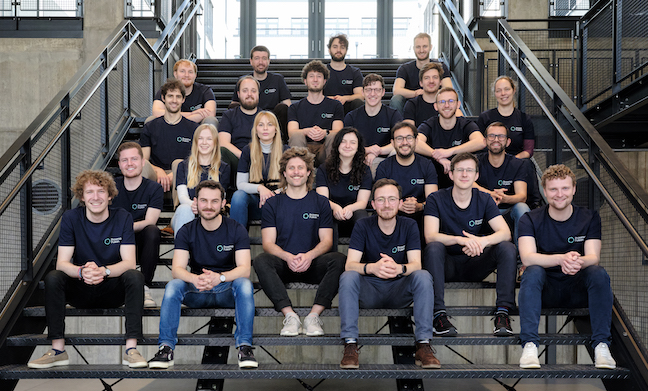Venture capitalists’ appetite for fusion startups has been up and down in the last few years. For instance, the Fusion Industry Association found that while nuclear fusion companies had attracted over $6 billion in investment in 2023, $1.4 billion more than in 2022, the 27% growth proved slower than in 2022, as investors battled external fears such as inflation.
However, numbers don’t tell the full story: Venture interest in the field has remained strong as startups begin to find novel ways to potentially capture the power of the sun to produce safe, limitless energy.
The field reached a significant milestone in 2022 when the Department of Energy’s National Ignition Facility managed to bring about a fusion reaction that produced more power than was required to spark a fuel pellet. And then in August last year, the team confirmed that their first test wasn’t just good fortune. The road to true fusion power remains long, but the kicker is that it’s no longer theoretical.
The latest company looking to make a name for itself in the space is Proxima Fusion, the first spin-out from the lauded Max Planck Institute for Plasma Physics (IPP). Munich-based Proxima has raised €20 million ($21.7 million) in a seed round to begin building its first generation of fusion power plants.
The company bases its technology on “quasi-isodynamic (QI) stellarators” with high-temperature superconductors. In plain English, a stellarator is a doughnut-shaped ring of precisely positioned magnets that can contain the plasma from which fusion energy is born. However, stellarators are extremely hard to make, as they position the magnets in rather odd shapes, and require extremely precise engineering.
Proxima Fusion claims it came up with a way to address these issues using both engineering solutions and advanced computing in 2022, and as a spin-out, the company has now built on research from the Max Planck IPP, which built the Wendelstein 7-X (W7-X) experiment, the world’s largest stellarator.
The new approach to fusion is only possible because of the ability to use AI to simulate the behavior of the plasma, thus bringing the prospect of viable nuclear fusion nearer, Dr. Francesco Sciortino, co-founder and CEO of Proxima Fusion, told TechCrunch over a call.
German startup Marvel Fusion, which has been funded by German VC Earlybird, uses laser containment to spark the reaction, and when I asked Sciortino why Proxima uses stellarators, he said, “With lasers, you take a small pellet and blast heat at it with many very powerful lasers. That releases energy via fusion, but you’re compressing something and letting it explode. Whereas what we are working on is that actual confinement. So it’s not an explosion, but in a steady state; it’s continuous in operation.”
Sciortino, who completed his PhD at MIT on tokamak nuclear projects, said Proxima will leverage what has been learned from the W7-X device, which has had more than €1 billion in public investment. He added the projected timeline to get to fusion energy is by the mid-2030s. “We’re looking at, give or take, 15 years. Building an intermediate device in Munich most likely by 2031 is our objective. If we manage to get to that then the middle of the 2030s is possible.”
The startup’s investors are equally convinced.
Ian Hogarth, a partner at one of Proxima’s investors, Plural, told me, “There are two big things that I think are really compelling about what Proxima are doing. First, their stellarator has benefited from two big, big trends in high-temperature superconductors and progress in computer-aided simulation of complex, multi-physics systems. And secondly, the world’s most advanced stellarator in the whole world is in North Germany.”
He thinks that Proxima being the first spin-out from that ambitious government project will give it the edge it needs to succeed: “It’s a classic example of the ‘entrepreneurial state,’ where a startup can build on top of this incredible public investment.”
That said, Proxima is not the only player in the race for fusion. Helion Energy raised a $500 million Series E two years ago, led by tech entrepreneur and OpenAI CEO Sam Altman, for instance. And there are at least 43 other companies developing nuclear fusion technologies.
Proxima’s seed round was led by Redalpine, with participation from the Bavarian government-backed Bayern Kapital, German government-backed DeepTech & Climate Fonds and the Max Planck Foundation. Plural and existing investors High-Tech Gründerfonds, Wilbe, UVC Partners and the Tomorrow Fund of Visionaries Club also participated in the round.































Comment